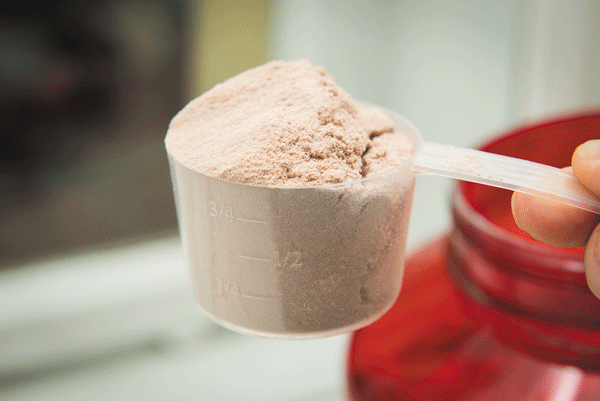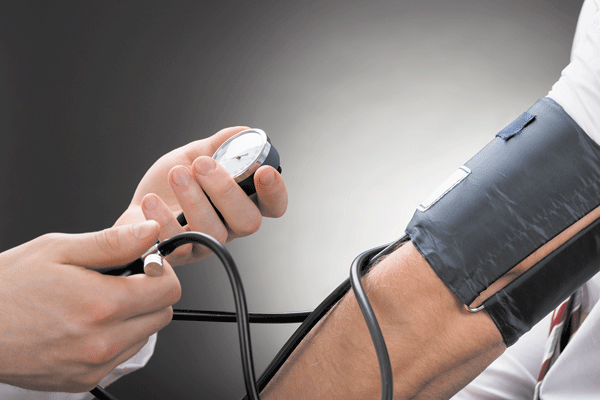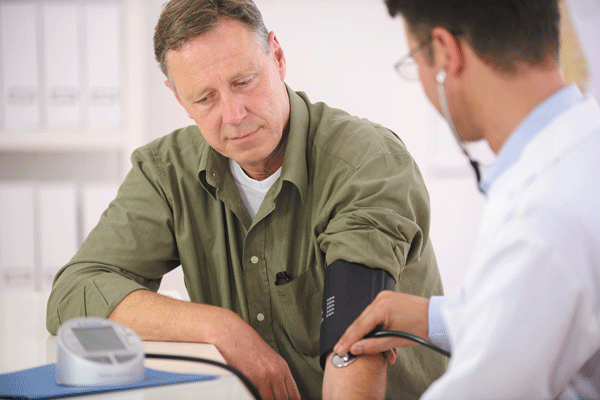
Driving with arthritis pain: Stay comfortable — and safe — behind the wheel

Daily cup of coffee may prevent afib recurrence

Gene-editing therapy lowers harmful blood fats in early study

What is EMDR therapy, and who can it help?

GLP-1 drugs versus bariatric surgery for treating obesity

Two dumbbells, three exercises, and 10 minutes

Easing the emotional burden of IBS

Modify your push-ups to meet your fitness level

What is long QT syndrome?

Stroke survivors may benefit from very low LDL levels
Controlling Your Blood Pressure Archive
Articles
Nordic diet linked to lower stroke risk
Research we're watching
Following a Nordic diet — which features fish, whole grains, plus fruits and vegetables popular in Scandinavian countries — may help lower the risk of stroke, a new study suggests.
The study, published in the February 2017 issue of Stroke, included more than 55,000 Danish people from a national health registry, all of whom filled out questionnaires about their diets and other lifestyle habits. Researchers looked at how closely the participants followed the Healthy Nordic Food Index, which includes six food categories: fish, apples and pears, root vegetables (such as carrots and celery root), cabbages (which also include broccoli, cauliflower, kale, and Brussels sprouts), rye bread, and oatmeal.
Blood pressure creeping up? How to bring it down without drugs
Lifestyle changes may reduce your need for pills.
For most of us, as the years increase, so does our blood pressure. By age 60, almost 65% of Americans will have high blood pressure. Although men are more likely to develop high blood pressure between ages 45 and 55, women are at greater risk after 65. Yet high blood pressure isn't an inevitable fact of later life. It's possible to slow the processes that drive blood pressure up. By doing so, you'll also reduce your risk of heart attack, stroke, and dementia.
Blood pressure reflects the amount of blood flowing through the vessels and the pressure exerted by the vessel walls against the blood. In a blood pressure reading, the top number represents the systolic pressure, recorded when the vessel contracts to push blood through. The bottom number represents the diastolic pressure, recorded when the vessels are relaxed. Over time, our blood vessels lose elasticity, and atherosclerotic plaque may build up in artery walls. Both of these trends make vessels stiffer. As vessels become less flexible, blood pressure is higher at any level of blood flow.
Milk protein may lower blood pressure
A powdered form of whey protein from milk may modestly lower blood pressure.
Potassium lowers blood pressure
When it comes to fighting high blood pressure, the average American diet delivers too much sodium and too little potassium. Eating to reverse this imbalance could prevent or control high blood pressure and translate into fewer heart attacks, strokes, and deaths from heart disease.
Normal body levels of potassium are important for muscle function. Potassium relaxes the walls of the blood vessels, lowering blood pressure and protecting against muscle cramping. A number of studies have shown an association between low potassium intake and increased blood pressure and higher risk of stroke. On the flip side, people who already have high blood pressure can significantly lower their systolic (top number) blood pressure by increasing their potassium intake when they choose to eat healthy foods.
Low potassium levels from diuretics
Thiazide diuretics like hydrochlorothiazide (Esidrix, HydroDIURIL, other brands) continue to be a very effective way to lower blood pressure for people with hypertension. They're inexpensive, and results from large studies have shown them to be at least as effective as other types of blood pressure drugs for most patients.
But if you're taking a diuretic, your potassium levels need to be watched. These drugs direct the kidneys to pump water and sodium into the urine. Unfortunately, potassium also slips through the open floodgates. A low potassium level can cause muscle weakness, cramping, or an abnormal heartbeat, which is especially dangerous for people with heart problems.
Pill-free ways to lower high blood pressure
Reduce your dependence on medications with these strategies.
More than a third of all adults in the United States have high blood pressure—a systolic pressure (the top number in a reading) of at least 140 millimeters of mercury (mm Hg), or a diastolic pressure (the bottom number) of at least 90 mm Hg, or both. The condition injures blood vessel walls and forces the heart to work harder, increasing the risk for heart disease and stroke.
Taking medication to treat high blood pressure is just part of the solution.
Beware of low diastolic readings when treated for high blood pressure
New research has linked heart tissue damage to blood pressure treatments that drive diastolic pressure (the bottom number in a reading) too low.
Reminder: Don't skip blood pressure medication
Millions of older adults aren’t taking their blood pressure drugs as directed. Ways to combat adherence problems include asking a doctor for less expensive drugs, understanding what a medication is for, and reporting side effects.
Blood pressure: Can it be too low?
New findings focus on diastolic blood pressure—the second number in your blood pressure reading.
Image: mangostock/Thinkstock
Of the two numbers that make up your blood pressure reading, the first one (systolic blood pressure) typically gets more attention. That's because as people age, their arteries lose their elasticity, and the inner walls are more likely to accumulate cholesterol-laden plaque. These factors tend to raise systolic blood pressure, a measure of the pressure inside the arteries when the heart contracts to pump blood throughout the body.
Current guidelines suggest that most people should aim for a systolic blood pressure reading of 140 millimeters of mercury (mm Hg) or lower. But last year, a widely publicized clinical trial suggested that a target of 120 mm Hg could further reduce the dangers associated with high blood pressure (namely, heart attack, stroke, heart failure, and death).
Gene discoveries may pave the way for new blood pressure drugs
The discovery of 44 gene sites associated with high blood pressure may provide leads for developing new drugs to treat this common condition.

Driving with arthritis pain: Stay comfortable — and safe — behind the wheel

Daily cup of coffee may prevent afib recurrence

Gene-editing therapy lowers harmful blood fats in early study

What is EMDR therapy, and who can it help?

GLP-1 drugs versus bariatric surgery for treating obesity

Two dumbbells, three exercises, and 10 minutes

Easing the emotional burden of IBS

Modify your push-ups to meet your fitness level

What is long QT syndrome?

Stroke survivors may benefit from very low LDL levels
Free Healthbeat Signup
Get the latest in health news delivered to your inbox!
Sign Up









